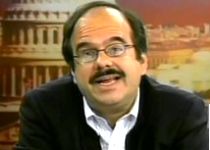Distrust main obstacle to Darfur talks – US diplomat
January 24, 2008 (KHARTOUM) — Distrust of the Sudanese government due to a string of broken promises is the biggest obstacle to planned talks to end the five-year-old conflict, the top U.S. diplomat in Sudan said.

“The biggest obstacle right now of course is … the deep distrust that exists,” Fernandez told Reuters, adding ongoing fighting, bombing and banditry in Darfur added to that distrust.
“Do you trust the government of Sudan if you are a rebel or if you are an IDP (internally displaced) or if you’re a member of an Arab tribe that was given all these promises by the government that were never met?” he said.
International experts estimate some 200,000 people have been killed and 2.5 million driven from their homes since mostly non-Arab rebels took up arms accusing central government of neglecting the remote west.
Khartoum mobilised mainly Arab militias to quell the revolt but some Arab tribes have switched sides, disillusioned with the descent into chaos in Darfur.
The rebel camp has also deeply fractured since only one of three negotiating insurgent groups signed a May 2006 peace deal.
Fernandez said non-implementation of that deal and of a separate 2005 north-south deal which prompted a breakdown of Sudan’s national coalition government last year meant there was widespread frustration at the prospect of more Darfur talks.
For trust to be earned, Khartoum must implement agreements signed locally and with the international community, he said.
TENSE RELATIONS
Sudan, under U.S. sanctions since 1997, has tense relations with Washington although both sides say they enjoy good cooperation on “counter-terrorism” issues. Khartoum hosted Islamist militant leader Osama bin Laden in the 1990s.
Washington bought land in 2005 for a bigger, more secure embassy in Khartoum but Fernandez said the Sudanese have consistently obstructed construction.
They are now holding U.S. diplomatic containers of building materials and equipment in Port Sudan, saying the Americans should pay customs. Diplomatic shipments are customs exempt.
“It’s a way for them to pressure us or respond to what they see as our actions,” the Charge said.
He said the killing of two U.S. embassy staff on Jan. 1 — American aid worker John Granville and a Sudanese driver — underlined the need to improve security. Investigators say they still do not know if the motive was political or criminal.
Fernandez said he was still concerned at the lack of implementation of the peace deal which ended Africa’s longest war in Sudan’s south. Last year the former southern rebels withdrew from the national coalition government in protest.
Since then there has been movement on withdrawing northern troops from south Sudan and funding an April census ahead of elections, but key issues like the status of the disputed central oil-rich Abyei region remain vague.
“Abyei was referred to the presidency — is that going to mean a real solution … or is it going to be… buried in the presidency as was the case for the last 2-1/2 years?” he said.
He said budget shortfalls for the census remained and warned a lack of tangible progress on these issues could create another political deadlock. “There’s too many vague areas and too many gaps between grand proclamations and reality,” he said.
(Reuters)
